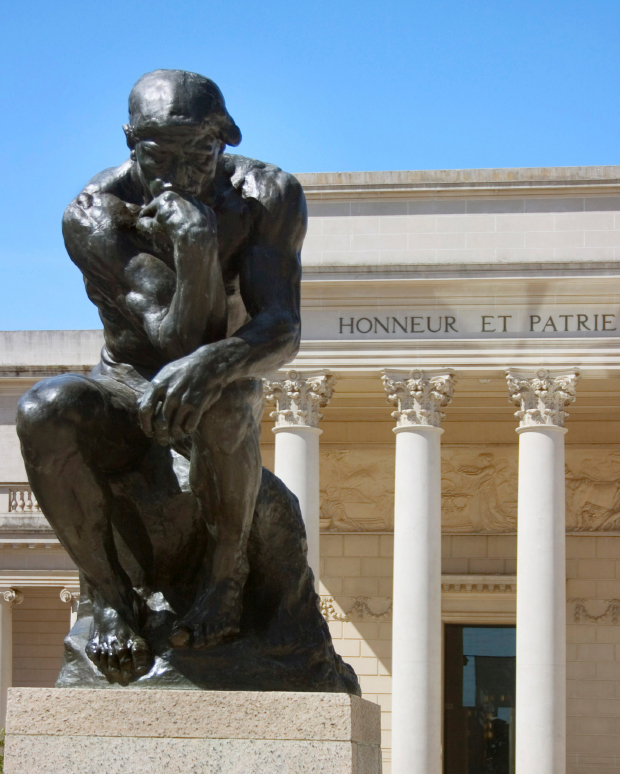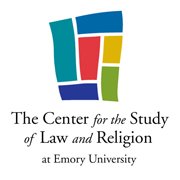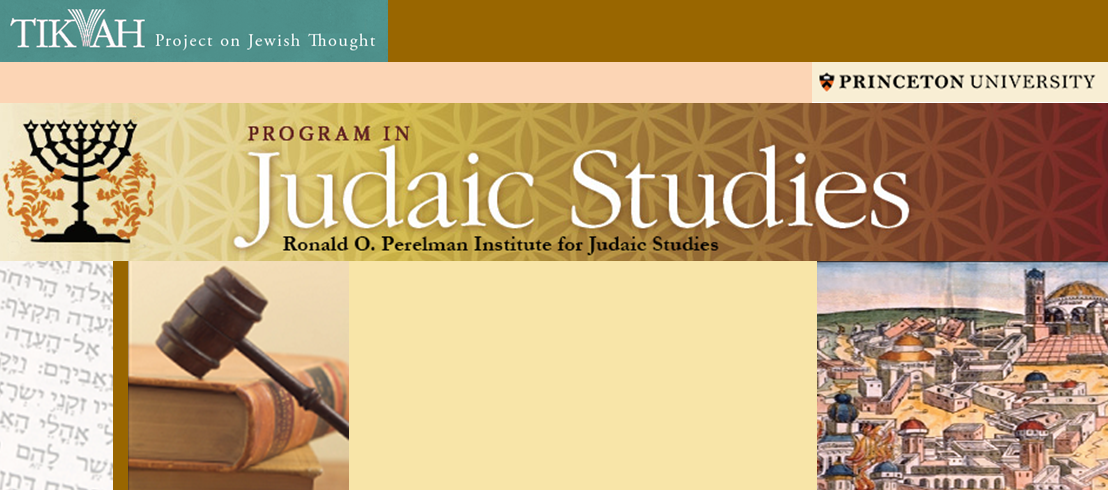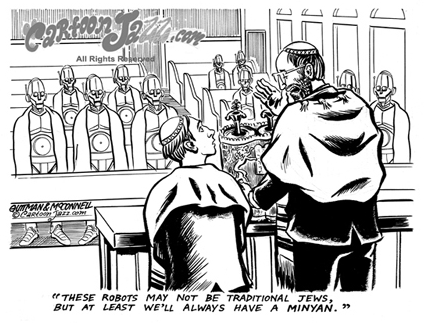letters from Ray | Jewish scholar says robots will achieve human level intelligence
June 1, 2014
Dear readers,
I recently saw this article by the Jewish Telegraphic Agency and wanted to share it with you.
I have an ongoing interest in the Turing test — a competition that gauges whether an artificial intelligence is capable of human level conversation.
There was a recent test of a chatbot named Eugene Goostman, and I’ve written my reaction to its test results.
This article is an interview with Orthodox Jewish Rabbi and thinker Mark Goldfeder, PhD who has also debated the recent chatbot competition in a story he wrote for CNN.
related reading:
Jewish Telegraphic Agency | “Should robots count in a minyan? Rabbi talks Turing test”
My Jewish Learning | “An overview of Jewish conversation and debate”
CNN | “The age of robots is here”
Ask Ray | “Response to announcement of chatbot Eugene Goostman passing the Turing test”
His position on the dawning of human level artificial intelligence, and its timeframe, is similar to my own. I found Rabbi Goldfeder’s reasoning intriguing. My date for human level AI remains 2029.
The article reads, “Mark Goldfeder, PhD is a fellow at Emory University’s Center for the Study of Law and Religion. He is working on a book on robots in the law titled Almost Human.”

Classic bronze statue The Thinker by Auguste Rodin, shows man deep in contemplation. Will artificial intelligence be capable of reasoning? Orthodox Judaism focuses on the study and debate of social and philosophical issues. Rabbi scholar Mark Goldfeder, PhD says human level AI could be 30 years away. (credit: iStock)
Goldfeder examines whether robots could one day be regarded as members of the community, and what Jewish tradition and law says about this concept.
“I think the difference between science fiction and science is time,” Goldfeder says.
“We are far from the situation of having a robot capable of walking among us unsuspected,” he continued.
“But I do think that Jewish thinkers should start tossing around the questions because we’re probably 30, not 100, years away,” Rabbi Goldfeder concluded.
Best,
Ray Kurzweil
related reading:
Emory University | Center for the Study of Law and Religion
Emory University | Center for the Study of Law and Religion: Mark Goldfeder, PhD
Princeton University | Center for the Study of Religion
Princeton University | Program in Judaic Studies
Princeton University | Tikvah Project on Jewish Thought
Dear readers,
I came across this cartoon cleverly illustrating the concepts from the article, and laughed out loud.
I hope you enjoy it.
Best wishes,
Ray Kurzweil





